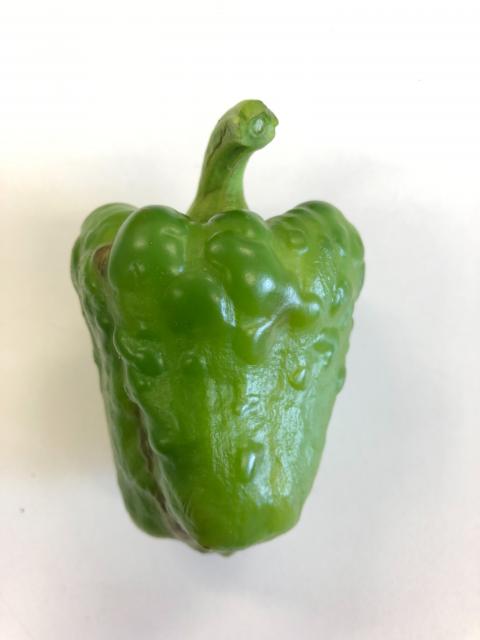Detection in WA
Pepper mild mottle virus (PMMoV) has been detected recently on capsicum crops in the Carnarvon area. This virus has been found in Australia before and is not under a quarantine action, but it is a concern and special actions for its management are recommended.
Symptoms
Like its name suggests the virus often produces mild symptoms on leaves of infected capsicum and chilli plants, however in some varieties leaf symptoms may be absent. Symptoms on capsicum fruit, including blistering and necrosis, can cause loss of marketability. The virus readily infects capsicum and chill, and can also infect tomato and eggplant.
Spread and management of PMMoV
The virus is highly stable and able to persist in soil and on surfaces allowing it to spread within and between farms. Brief contact between infected plants, or contaminated surfaces, and healthy plants is enough for the virus to be spread. Insects, such as aphids and thrips, cannot spread the virus, however it can be readily spread in the seeds of certain susceptible plants such as capsicum. Control and management of the virus is based around good on-farm hygiene practises to prevent its arrival and remove sources of infection that allow it to survive between growing seasons. Below are several recommendations for control of PMMoV:
- Use only healthy seeds and seedlings as the virus can easily be introduced from contaminated sources.
- Capsicum varieties are available with resistance to the virus, which may be suitable to reduce its impact on farms where it is present.
- Prevent movement of equipment and machinery between farms and between production areas. Ensure all visitors and workers use footbaths each time they enter.
- Surfaces, tools and hands can be cleaned by removing dirt first with water and followed with a 20% non-fat dry milk powder solution which is safe and effective. Other disinfectants (e.g. bleach and virkon) can work also. Change solutions daily or when heavily contaminated with soil or plant material to ensure the solution can work.
- Infected plantings should be destroyed and buried as well as all contaminated material including wooden stakes in an area which is not used for cropping.
- Remove old finished crops and avoid carryover of plants between growing seasons as many may act as infection sources to new crops. Weeds including nightshade can host the virus and should be destroyed as well.
- Rotate plantings and do not plant susceptible plants into areas infected with the virus last year. Melons, pumpkins and zucchini are not affected by the virus and can be used in rotation with capsicum and tomatoes in infected areas.
- Do not move people, equipment from older plantings to younger plantings. Clean equipment, including hands and footwear before commencing work.
- Insects do not spread the virus, and insecticides do not help prevent its spread on infected properties.
Growers interested in having their plants tested at no charge as part of the Area Wide Management of Viruses and Bacteria of Vegetables (VG18086), funded by Hort. Innovation Australia are encouraged to contact Craig Webster or Alison Mackie.



